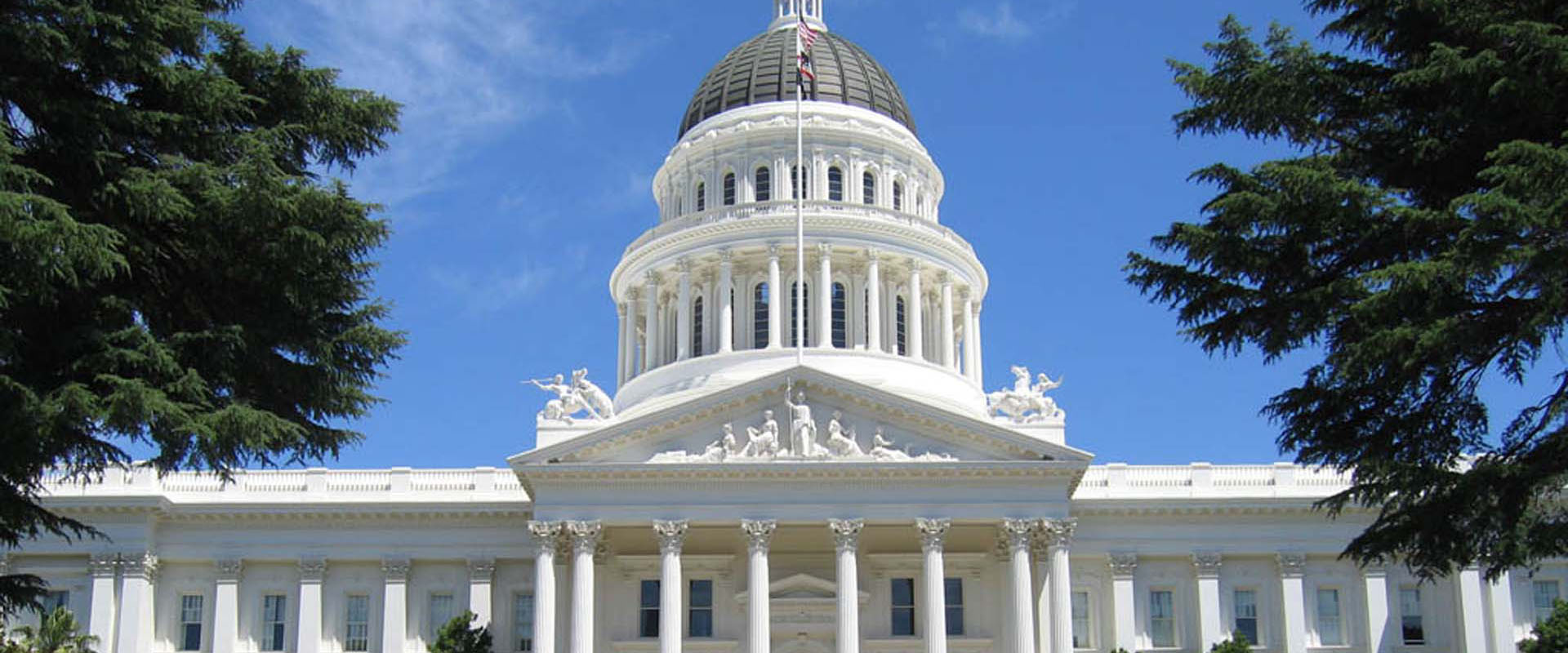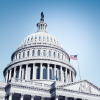Supreme Court Opinion on Wedding Cake for Same-Sex Couples Provides Cautionary Tale for Public Entities

June 2018
Number 24
On June 4, 2018, the United States Supreme Court decided theMasterpiece Cakeshop v. Colorado Civil Rights Commission case in a 7-2 decision. While this case had the potential to provide new guidance on the complex intersection between the rights of LGBTQ+ individuals and the rights of individuals to religious freedom, Justice Anthony Kennedy's opinion is narrow and leaves many questions unanswered. The Court's limited ruling is largely based upon the underlying facts of the case and, more specifically, the comments made by two members of a hearing panel/adjudicatory body, which provides a cautionary tale for all public agencies that conduct adjudicatory proceedings.
Background
In 2012, the owner of a Colorado bakery, Masterpiece Cakeshop, informed a same-sex couple that he would not prepare a wedding cake for them due to his religious opposition to same-sex marriages. The couple filed a charge with the Colorado Civil Rights Commission that the owner had discriminated against them based on their sexual orientation. The Commission ultimately ruled in the couple's favor, which the Colorado state courts affirmed.
The bakery owner petitioned the United States Supreme Court to overturn the Commission's decision, arguing that if anti-discrimination laws are interpreted to require him to create a same-sex wedding cake against his religious views or face a penalty, then the government is compelling him to make speech supporting same-sex marriages. The owner viewed this as a violation of his rights of free speech and free exercise of religion.
On the other hand, the same-sex couple was seeking goods and services for their wedding reception the same way other soon-to-be-wed heterosexual couples typically do. The bakery owner's refusal raised significant, controversial issues, such as: What rights do individuals have to assert their views over an individual's religious beliefs? When does expressing a religious viewpoint become discriminatory or unlawful? These are questions public entities from around the country have grappled with during recent periods of social change.
The Supreme Court reaffirmed that religious and philosophical objections to gay marriage are protected views and at times, protected speech. The Court also ruled that anti-discrimination laws protect the rights of gay people to acquire goods and services on the same terms and conditions as other members of the public. However, the Supreme Court did not address the free speech issue because it concluded that the Commission had violated the bakery owner's free exercise of religion by not considering his arguments for refusing to serve the same-sex couple in a "neutral and respectful manner."
Adjudicatory proceedings must be fair and treat individuals equally. The Court found that the Commission failed to do this because a commissioner told the owner during a public hearing, on the record, that if he wants to do business in the state and his religious views conflict with anti-discrimination laws, then he needs to compromise, and another commissioner compared the owner's argument to justifications for slavery and the Holocaust. Read together, and without any verbal or written objections from the other commissioners, the Court found the Commission was not fair and impartial in adjudicating the case.
The government must be neutral with respect to religion. Justice Kennedy's opinion holds that even a slight suspicion of animosity or distrust of religion, including that which stems from verbal comments made by a minority of members of a decision-making body during an adjudicatory proceeding about religion, may result in a violation of an individual's right to free exercise of religion. To what extent other board members, council members or other adjudicatory decision-makers must publicly disavow opinionated comments from another member during the decision-making or adjudicatory process is unclear and will require further clarification from the courts. The Supreme Court's anticipated ruling later this month inTrump v. Hawaii may provide some instruction on this issue, and specifically, the impacts of decisions made by public office holders or employees when they are alleged to have made statements evidencing discriminatory animus in relation to the decisions at issue.
Takeaways
The Court's opinion serves as a reminder for public entities that civil discourse, perhaps now more than ever, should be a fundamental standard in an adjudicatory setting-a neutral space where individuals will be treated fairly and equally, regardless of their cultural, sexual, or religious differences. Public bodies that deviate from this standard risk losing their credibility and their decisions may be subject to successful legal challenge.
If you have any questions about this case; how to approach conflicts between religion and LGBTQ+ issues with your constituents, employees, or students; or about how your public agency can promote civil discourse in this time of social change, please contact the authors of this Client News Brief or an attorney at one of our eight offices located statewide. You can also visit our website, follow us on Facebook or Twitter or download our Client News Brief App.
Number 24
On June 4, 2018, the United States Supreme Court decided theMasterpiece Cakeshop v. Colorado Civil Rights Commission case in a 7-2 decision. While this case had the potential to provide new guidance on the complex intersection between the rights of LGBTQ+ individuals and the rights of individuals to religious freedom, Justice Anthony Kennedy's opinion is narrow and leaves many questions unanswered. The Court's limited ruling is largely based upon the underlying facts of the case and, more specifically, the comments made by two members of a hearing panel/adjudicatory body, which provides a cautionary tale for all public agencies that conduct adjudicatory proceedings.
Background
In 2012, the owner of a Colorado bakery, Masterpiece Cakeshop, informed a same-sex couple that he would not prepare a wedding cake for them due to his religious opposition to same-sex marriages. The couple filed a charge with the Colorado Civil Rights Commission that the owner had discriminated against them based on their sexual orientation. The Commission ultimately ruled in the couple's favor, which the Colorado state courts affirmed.
The bakery owner petitioned the United States Supreme Court to overturn the Commission's decision, arguing that if anti-discrimination laws are interpreted to require him to create a same-sex wedding cake against his religious views or face a penalty, then the government is compelling him to make speech supporting same-sex marriages. The owner viewed this as a violation of his rights of free speech and free exercise of religion.
On the other hand, the same-sex couple was seeking goods and services for their wedding reception the same way other soon-to-be-wed heterosexual couples typically do. The bakery owner's refusal raised significant, controversial issues, such as: What rights do individuals have to assert their views over an individual's religious beliefs? When does expressing a religious viewpoint become discriminatory or unlawful? These are questions public entities from around the country have grappled with during recent periods of social change.
The Supreme Court reaffirmed that religious and philosophical objections to gay marriage are protected views and at times, protected speech. The Court also ruled that anti-discrimination laws protect the rights of gay people to acquire goods and services on the same terms and conditions as other members of the public. However, the Supreme Court did not address the free speech issue because it concluded that the Commission had violated the bakery owner's free exercise of religion by not considering his arguments for refusing to serve the same-sex couple in a "neutral and respectful manner."
Adjudicatory proceedings must be fair and treat individuals equally. The Court found that the Commission failed to do this because a commissioner told the owner during a public hearing, on the record, that if he wants to do business in the state and his religious views conflict with anti-discrimination laws, then he needs to compromise, and another commissioner compared the owner's argument to justifications for slavery and the Holocaust. Read together, and without any verbal or written objections from the other commissioners, the Court found the Commission was not fair and impartial in adjudicating the case.
The government must be neutral with respect to religion. Justice Kennedy's opinion holds that even a slight suspicion of animosity or distrust of religion, including that which stems from verbal comments made by a minority of members of a decision-making body during an adjudicatory proceeding about religion, may result in a violation of an individual's right to free exercise of religion. To what extent other board members, council members or other adjudicatory decision-makers must publicly disavow opinionated comments from another member during the decision-making or adjudicatory process is unclear and will require further clarification from the courts. The Supreme Court's anticipated ruling later this month inTrump v. Hawaii may provide some instruction on this issue, and specifically, the impacts of decisions made by public office holders or employees when they are alleged to have made statements evidencing discriminatory animus in relation to the decisions at issue.
Takeaways
The Court's opinion serves as a reminder for public entities that civil discourse, perhaps now more than ever, should be a fundamental standard in an adjudicatory setting-a neutral space where individuals will be treated fairly and equally, regardless of their cultural, sexual, or religious differences. Public bodies that deviate from this standard risk losing their credibility and their decisions may be subject to successful legal challenge.
If you have any questions about this case; how to approach conflicts between religion and LGBTQ+ issues with your constituents, employees, or students; or about how your public agency can promote civil discourse in this time of social change, please contact the authors of this Client News Brief or an attorney at one of our eight offices located statewide. You can also visit our website, follow us on Facebook or Twitter or download our Client News Brief App.
As the information contained herein is necessarily general, its application to a particular set of facts and circumstances may vary. For this reason, this News Brief does not constitute legal advice. We recommend that you consult with your counsel prior to acting on the information contained herein.






